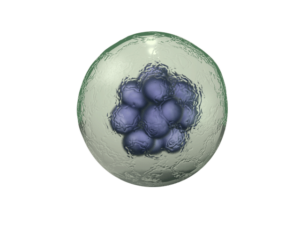What is cold & flu?
How can you improve from a cold & flu?
There are several things you can do to help improve your symptoms and recover from a cold or flu:
- Get plenty of rest: Your body needs extra rest to fight off the virus, so make sure to get enough sleep and avoid strenuous activities.
- Stay hydrated: Drink plenty of fluids, such as water, juice, and broth, to help prevent dehydration and to loosen mucus in your nose and throat.
- Manage your symptoms: Take over-the-counter medications to relieve symptoms such as fever, cough, and congestion. Be sure to follow the recommended dosages.
- Use a humidifier: Adding moisture to the air can help ease congestion and soothe a sore throat.
- Gargle with salt water: Mix salt and warm water to gargle with to help ease a sore throat.
- Use nasal saline drops or sprays: These can help clear nasal passages and relieve congestion.
- Consider taking antiviral medications: If you have the flu, your healthcare provider may prescribe antiviral medications to help shorten the duration and severity of the illness.
It’s also important to avoid spreading the illness to others by covering your mouth and nose when coughing or sneezing, washing your hands frequently, and avoiding close contact with others until you are no longer contagious.
How does IV therapy help with cold & flu?
Intravenous (IV) therapy is a treatment option that involves delivering fluids, medications, and nutrients directly into a patient’s bloodstream through an IV line. While IV therapy is not a cure for cold and flu, it can help improve symptoms and speed up recovery by providing hydration and delivering medications directly to the bloodstream.
IV therapy can help replenish fluids lost through sweating, vomiting, or diarrhea, which is especially important if you’re experiencing these symptoms due to a cold or flu. Proper hydration can also help thin out mucus in the respiratory tract, making it easier to cough up and clear out of the lungs.
Additionally, IV therapy can deliver medications that can help relieve symptoms such as fever, pain, and inflammation. This can be especially beneficial for those who have difficulty swallowing or absorbing medications orally due to nausea, vomiting, or gastrointestinal issues.
Overall, IV therapy can help support the body’s immune system and improve the chances of a faster recovery from cold and flu symptoms. However, IV therapy should only be used when recommended by a healthcare professional and should not be used as a substitute for other treatments, such as rest and medication.
What vitamins and meds are used for IV therapy to alleviate cold & flu?
The specific vitamins and medications used in IV therapy for cold and flu can vary depending on the patient’s individual needs and the severity of their symptoms. However, some common vitamins and medications used in IV therapy for cold and flu include:
- Vitamin C: This antioxidant vitamin is often used in IV therapy for its immune-boosting properties and potential to reduce the duration and severity of cold and flu symptoms.
- B-complex vitamins: These vitamins, including B1, B2, B3, B5, and B6, play important roles in energy metabolism and immune function, and may help improve symptoms of fatigue and weakness associated with cold and flu.
- Zinc: This mineral is important for immune function and may help reduce the duration and severity of cold and flu symptoms.
- Magnesium: This mineral is important for muscle and nerve function, and may help reduce muscle aches and cramps associated with cold and flu.
- Anti-inflammatory medications: These medications, such as ibuprofen or ketorolac, can help reduce fever, pain, and inflammation associated with cold and flu.
- Anti-nausea medications: These medications, such as ondansetron or metoclopramide, can help relieve nausea and vomiting associated with cold and flu.
It’s important to note that IV therapy should only be administered by a qualified healthcare professional and should be used in conjunction with other treatments, such as rest and medication, as recommended by a healthcare provider.











